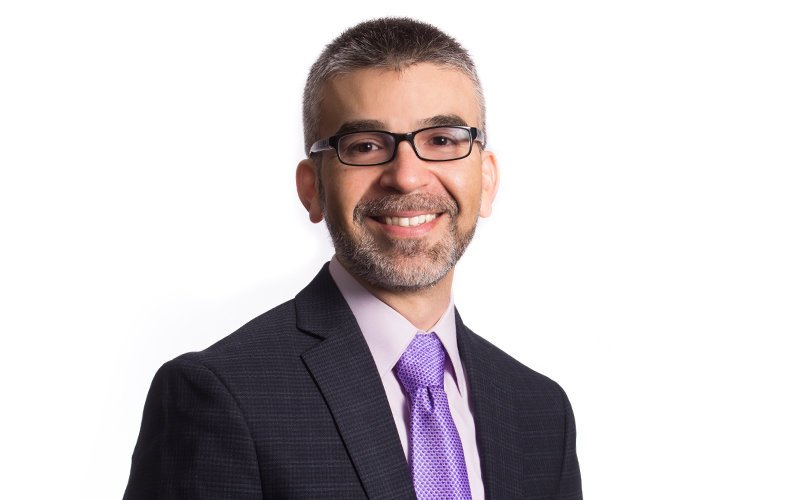
Bilingual educator Armando Garza believes that K-12 students in the U.S. should keep their native language and become biliterate — and that teachers should embrace this perspective towards bilingualism.
“These students deserve a quality education that encompasses not only English language development, but their native language should be fostered as well,” said Garza, assistant professor of elementary and bilingual education, who began teaching this fall at Cal State Fullerton.
Garza, who is from Monterrey, Mexico, worked as a bilingual educator in his native country, where he taught middle school mathematics, high school English as a foreign language and bilingual education classes in a college teacher preparation program. He also obtained teaching credentials to teach high school Spanish in Georgia public schools. Before joining CSUF, Garza worked as an assistant professor of teacher and bilingual education at Texas A&M University-Kingsville.
He earned his doctorate in culture, literacy and language from the University of Texas at San Antonio and master’s degree in education-curriculum and instruction from LaGrange College in Georgia. He also holds bachelor’s degrees in music and instrumentation and architecture from Universidad Autónoma de Nuevo León in Monterrey.
What inspired you to go into this field?
My path in cultural, linguistic and literacy studies started while taking a class on diversity in education for my master’s degree program. I explored the multiple and complex issues that immigrant families go through when navigating the U.S. educational system. I immersed myself in cultural studies and biliteracy — the ability to read and write proficiently in two languages — and felt the need to expand my perspectives.
What are your research interests?
My research includes bilingual and biliteracy education, and academic success of emergent bilingual students, especially in the areas of mathematics and science. Additionally, I am interested in how bilingual mathematics teachers and their bilingual students use their linguistic resources to convey mathematical meanings. I strongly believe that teacher educators need to foster a critical view of education in their courses so future teachers are impacted in such a way that their teaching practices are infused with a social justice lens.
What do you hope students learn from your teaching?
I teach for social justice and try to transfer this perspective to my students. My classes involve language, culture and education, in which the intersection of these elements is critical and political in nature. I also try to foster sociopolitical consciousness in my students. Future teachers need to embrace bilingualism and biliteracy as assets that need to be promoted.
What would you like others to know about your area of expertise?
Teaching emergent bilinguals, widely known as English language learners, with a social justice lens encompasses teaching for bilingualism and biliteracy. Schools should not subtract the native language of our culturally and linguistically diverse students.